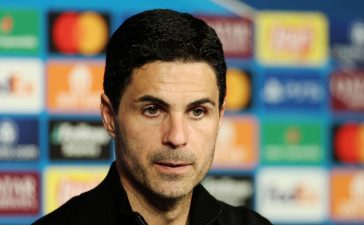Children who took part in the recent riots should only be prosecuted as “a last resort”, the head of the body that oversees the youth justice system in England and Wales has said, warning against a rush to punish those involved.
Keith Fraser, the chair of the Youth Justice Board, said it was a “real, real worry” that boys as young as 11 were involved in the disorder but he cautioned against making snap decisions to haul them before the courts.
“If there was a message that I’d want to get out here it’s that we don’t come to really quick decisions about what should happen to children who’ve been involved in the disorder, it’s that we consider it on a case-by-case basis,” he said.
As of 15 August, 58 children and young people had been prosecuted as part of Keir Starmer’s “swift and robust” response to the worst civil unrest in England since 2011.
The National Police Chiefs’ Council (NPCC) said 145 juveniles – aged 10 to 17 – had been arrested in relation to the disorder. Of those, 58 had been charged with criminal offences.
Thirty-five of those arrested by police were aged 14 and under – a quarter of the total – and they included two 11-year-olds and six 12-year-olds.
An NPCC spokesperson said it was “important to avoid the unnecessary criminalisation of children and young people” but that police had a duty to respond appropriately “in the context of the serious disorder we have seen”.
“This can include the arrest and charge in the case of violent disorder and other serious offences,” they said.
The total number of people charged in relation to the disorder was 547 by Monday night, according to the Crown Prosecution Service (CPS). The CPS has not released figures on the number of young people charged.
Stephen Parkinson, the director of public prosecutions, said this month that he had ordered prosecutors to make immediate charging decisions as soon as there was sufficient evidence.
He said it was “deeply disturbing” that many young people were involved in the disorder and warned they faced “lifelong consequences”, including a criminal conviction and a marker on the Police National Database.
Boys as young as 11, including a 12-year-old with attention deficit hyperactivity disorder (ADHD), are among the dozens prosecuted so far.
An 11-year-old boy was charged with riot, throwing petrol bombs and possessing an offensive weapon after anti-immigrant disorder in Belfast last month. He will be sentenced on 6 September.
Most of the youths involved have been charged with violent disorder, which carries a maximum sentence of a two-year detention and training order, the first half of which must be served in a young offender institution.
A 15-year-old boy from Sunderland will be sentenced next week after becoming the first to be charged with riot, a more serious charge that carries a maximum penalty of 10 years’ imprisonment for adults.
Fraser, a senior former police officer, said the CPS was “really committed” to taking alternative approaches towards youths but it was a “sad fact” that some children would have to be prosecuted.
He told the Guardian: “My hope is that there has been individual consideration in relation to each child. That [prosecution] has ultimately got to be a last resort and deemed necessary by all those involved.
“There’s nothing that we are saying from a Youth Justice Board perspective that says that children should not be prosecuted, but every consideration must take place first to ensure that is the right outcome. And then if children are prosecuted we do all that we can to make sure that children do not come back into the system.”
As many as 485 children and young people were prosecuted for taking part in the 2011 riots, which were sparked by the fatal police shooting of Mark Duggan in north London.
One study later showed that as many as two-thirds of those in court had some form of special educational needs, compared with an average of just over one in five among secondary school pupils.
Steph Roberts-Bibby, the chief executive of the Youth Justice Board, said she was “appalled” by the violent scenes after the murder of three young girls at a holiday club in Southport on 29 July.
She said social factors including “poverty, alienation from both school and police, and a lack of trust in policing” were at play for the young people involved, part of a generation experiencing alarming levels of anxiety after the Covid pandemic.
“Whilst there is a comparison to 2011 to [the disorder] we’ve recently seen, the context in which children live their lives is totally different,” Roberts-Bibby said.
Fraser said there would need to be a wide-ranging review to understand why young people got involved in the disorder, but he stopped short of calling for an official inquiry akin to the Scarman report into the 1981 Brixton riots.
He said: “We do need to learn the lessons from what’s happened here but, whatever approach we have, it needs to be distinct and focused around children and young people and understanding it from that perspective.”










